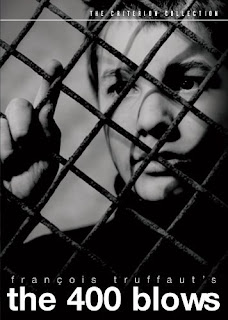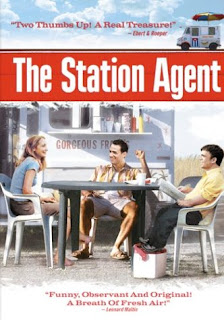
the fourth part in francois truffaut's antoine doinel cycle, bed and board explores the married life existance of antoine and christine, his sweetheart from stolen kisses. the concept of antoine doinel being a part of a marriage is an interesting one alone, and even the way in which the marriage is announced to the viewer is as inventive and quirky as one has come to expect from the series. as the camera focuses on various areas of her body, christine is seen walking down a street, stopping off at several vendors along the way. when referred to as 'mademoiselle' (miss) by the various people she encounters she corrects them with "non. madam!'' ("no. mrs!"). this somewhat slow reveal is the perfect way to start a film of two very distinct halves.
for some reason the first half of bed and board feels much different to the second. not really in terms of tone or anything, but moreso in quality. the first half, in which we see antoine ply his wares as a flower-dyer, and go through the motions of young married life is very entertaining, yet the second half (post-antoine's affair) seems lacking somewhat.
once again 'the family' is a major theme within the antoine doinel cycle. antoine's relationship with his own parents is once again avoided, but the onus is placed on that of antoine's relationship with his own son. the scenes of a proud antoine posing for photographs with his new born son is genuinely affecting, and wonderful to boot. his proclamations of his sons future greatness contradict greatly with the yore's of antoine's own relationship with his parents. in related territory we see antoine's relationship with christine's parents is as strong as ever. he latches on to them in a similiar way to how he did with colette's parents in antoine and colette. also, an indication to the doomed nature of antoine's affair with the japanese girl is perhaps telling in the way in which he doesnt develop a relationship with her family.
a key line within the film in the form of -
"moving from the personal to the universal"
is an interesting surmisation might be that just be the key point of the film, at least within the series. for the first time in his life antoine is truly independent, alas this might not be in the manner he had originally thought it would be. there is also a really interesting manner in which the doinel films interwene through converse, mentions of events, or homages of sorts are rife, with the cellar scene being a particularly nice nod to stolen kisses. the recycling of locations from previous doinel films, in particular the brothel and hotel from antoine and colette, is a nice touch, and similiarly theres a point where the relationship banter between antoine and christine reminds of the banter between seberg and belmondo in godard's a bout de souffle. taking the film as an influencer (as opposed to the influenced), theres an apparent influence within the film on the likes of wes anderson, with the whimsical and unique bold yellow subtitles, as well as the use of props and even clothing as a prop.
while its the scattershot and fantastic nature are what is most immediately striking with bed and board, it is the emotional subcore that is most effective. the moments wherein antoine attempts to prevent christine getting into a cab is genuinely heartbreaking, and the final phone calls are affecting beyond belief. this sort of emotional attachment, or reaction at least, isnt what is expected from this period of french cinema, yet its abundant in droves. the failure of antoine doinel's marriage is genuinely heartbreaking.



































